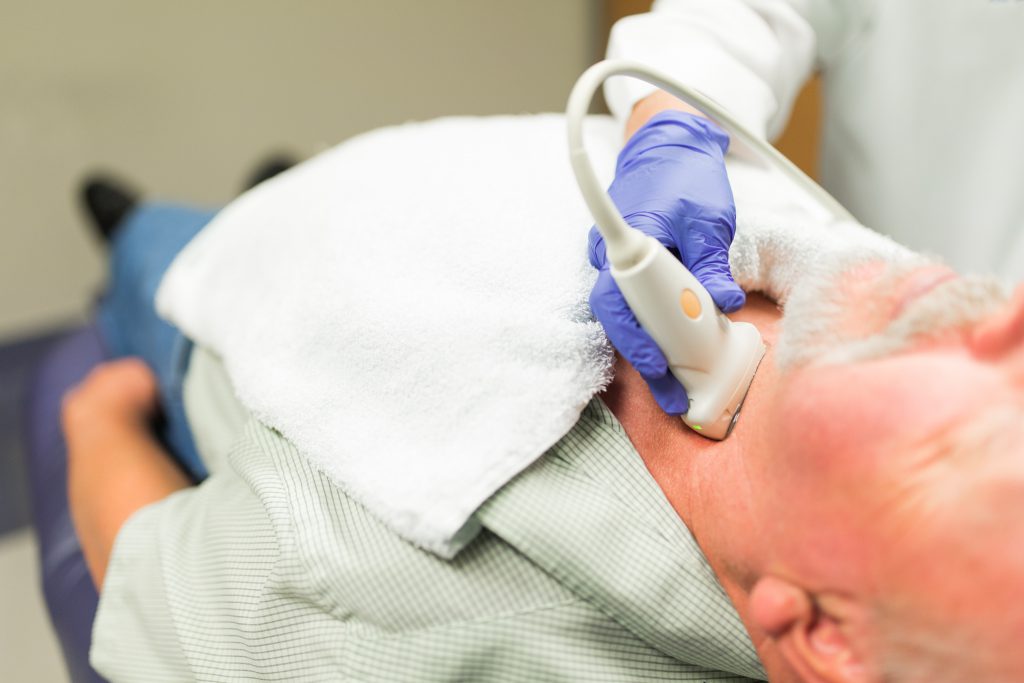The thyroid gland produces thyroid hormone, which helps to regulate the body’s metabolism. Thyroid disease can manifest as hyperthyroidism (excessive production of the thyroid hormone), hypothyroidism (under-active production of the thyroid hormone) or abnormal growth of thyroid tissue (nodules, goiter, cysts and/or cancer.)
Our primary care physicians generally begin by taking a medical history, performing a physical exam and obtaining blood work to determine if there may be a thyroid problem. Often, referral to one of our Endocrinologists is needed. More in-depth evaluation with ultrasound, needle biopsy and/or nuclear testing may also be required to make a diagnosis. Our physicians then work with ENTAS to determine if surgery is the best option. Depending on the type of thyroid problem, thyroid surgery is sometimes needed to remove part or all of the thyroid gland.
Advancements in technology have made it possible for our physicians to utilize molecular testing to make sure that a thyroidectomy is the best treatment plan possible for our patients.
Parathyroid Disease
The parathyroid glands are located in the neck, in close proximity to the thyroid. These four tiny glands regulate the level of serum calcium in the body by controlling the release of parathyroid hormone. In hyperparathyroidism, the body doesn’t get the signal to stop producing the parathyroid hormone. The serum calcium continues to climb and causes metabolic complications, such as osteoporosis, brittle bones prone to fracture, kidney stones, as well as abdominal pain, depression, fatigue and forgetfulness.
For patients with suspected parathyroid disease, the St. Elizabeth Primary Care and Endocrinology physicians work closely with ENTAS providers to determine a diagnosis and customized treatment plan for the patient. A patient’s parathyroid hormone and calcium levels will be checked, and an ultrasound, CT scan and/or nuclear medicine study will be performed. If the medical team decides that surgery is necessary, one or more of the abnormal parathyroid glands will be removed.
We Can Help
St. Elizabeth Healthcare has partnered with ENT & Allergy Specialists (ENTAS) to diagnose and manage the treatment of thyroid and parathyroid disease. We pride ourselves on the close collaboration between our Endocrinology physicians and ENTAS’ ENT surgeons, giving our patients the highest level of specialized care in Northern Kentucky.
The physicians at St. Elizabeth and ENTAS put patients as our first priority. We are proud to offer multidisciplinary care, giving you the advantage of regional leaders in the field working together to diagnose and treat your disease. We’ll be right with you every step of the way, and will have you back to feeling like your best self as soon as possible.
Contact Us
If you would like more information about thyroid or parathyroid disease, please call (859) 781-4900 to make an appointment with ENTAS.

